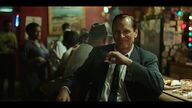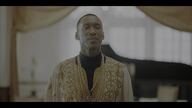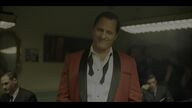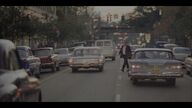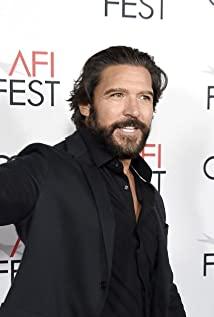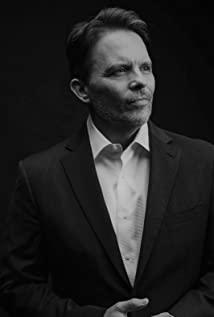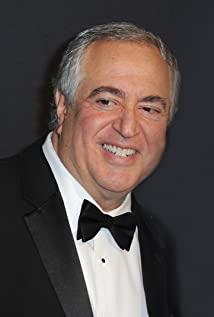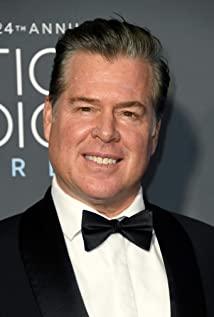In the 1960s, a black musician hired a white gangster in order to tour the racially discriminatory South of the United States. On the one hand, he was a driver and on the other hand, he had to help him solve various problems that he might encounter on the road. .
The idea of the "Green Book" is interesting because it reverses the position of master and servant that we usually see. Blacks are now masters, and whites take on the responsibility of serving blacks. We can see two kinds of opposition here, one is the skin color, and the other is wealth and education. The black man, Shirley, is richer and more educated; the white man, Tony, is at the bottom, casual.
Let's first compare the differences in behavior between the two.
In Tony, almost all moral etiquette are invalid. In order to make friends with a powerful person, Tony, who works as a waiter in a restaurant, self-directed and acted in a play: first took the person's hat away, and then after this person got angry, he took the initiative to give it to him, claiming to be himself Recovered. Through this play, Tony successfully won the trust he wanted. The moral evils of this Italian-American can be said to be numerous: fighting, gambling, bribery, holding a gun, petty theft, swearing, littering, urinating everywhere, and so on. In addition, he also has some bad habits that are morally uncripable, but still unable to get on the table: overeating, talking about tuberculosis, and not leaving his hands.
Shirley is very different from Tony. He always pays attention to his image in the eyes of others, especially the upper class. He behaves well and keeps his clothes tidy at all times; he only plays elegant music; he doesn't eat randomly; during the performance, he went to the hotel to go to the bathroom; he was very sensitive to his black identity and refused Go to any unpopular place. This difference in behavior is particularly reflected in his discipline to Tony: Tony stole something from a shop, and he ordered Tony to pay; Tony lost a drink bottle on the road, and he forced Tony to pick it up; In addition, he also wanted to help Tony make a more "noble" name.
On the surface, these are just differences in class, status, and cultivation, but in fact, they also reflect a huge difference in the outlook on life. "You must be thorough in everything you do. Work hard when you go to work, laugh and laugh as much as you want." This is Tony's outlook on life, in short, do whatever you want. Obviously, Shirley is not like this. Before he does something, the first thing he considers is how I should do it, and what others will think of me when I do it. One is to live for oneself, the other is to live for others. One is conforming to his own nature, the other is following an ideal image, an ideal, noble white image.
Needless to say, the issue of racial liberation and equality is a major issue of this film. From the perspective of the American South that the film shows us, blacks in the 1960s were still treated unequally. Some small towns prohibit blacks from staying after dark; many restaurants refuse blacks to enter; blacks in public places will be violently violated by whites; clothing stores refuse to tailor clothes for blacks. In this context, Shirley's tour of the South was mainly to broaden the realm of black rights. However, his music in the South is nothing more than a fashionable thing for white people to show their tolerance: a restaurant that invites Shirley to play, but does not allow him to dine with the white people. Seeking equality and freedom are Shirley's destiny bestowed on him. However, the direction of his efforts seemed to be wrong from the beginning. The liberation in his mind is to be able to live like a white man, in the master/slave duality defined by the white man, to occupy the position previously occupied by the white man. As a result, he became impersonal inside and out, as he analyzed by himself: "White people think he is not white enough, black people think he is not black enough." His embarrassing situation is very similar to the "fake foreign devils" we used to call. He didn't know, not only was he not trying to solve the problem, but he put a heavy shackle on himself.
This shackle, as we said earlier, is "living like a white man", and it is also the concept of "everyone is equal". The aforementioned differences between Shirley and Tony can be understood from another perspective. Tony has no conceptual baggage, while Shirley is bound by ideals everywhere. Here, the important thing is not whether people and people should be equal. We will never get an answer to this question; the important thing is whether we want our ideas to harm our autonomy. If we live according to the idea everywhere, then our freedom will lose any room for display. "Everyone is equal" is the concept, and morality is also the concept. In one scene, Shirley was arrested for having a physical relationship with a man. Tony paid a bribe to get Sherry to be released. Afterwards, Shirley blamed Tony for not using such a method. "Should people pay bribes" is a question that Shirley is entangled with, and Tony always considers how to effectively solve the current practical problems. One cares about the idea, the other cares about the effect.
Tony is not completely without principles. He kept his promise, and Shirley was worried that Tony would quit, and offered to raise Tony's salary. Tony refused because the previous position and salary had already been agreed. How to explain his inconsistency in morality? In fact, what is embodied here is not a victory of the idea over autonomy, on the contrary, it shows the absolute priority of autonomy here in Tony. Breach of promise means debt, and debt means that the creditor has a certain power over the debtor. Transferring one's power to others, and handing over one's own destiny to others is naturally not so easy for Tony to accept.
How does the idea make us lose our autonomy? Taking the bribery scene as an example, the solution that Sherry will recognize is not only to act in accordance with the concept of "infeasible bribery", but also to adhere to the concept of "not accepting bribes" in the entire police system, and the law must also accept that homosexuality It is justice. Homosexuality and heterosexuality are equal. In this way, before the law recognizes his own mistakes, he has no reason to act. All he has left is the path of justice, anger, and grievance. In other words, it is waiting. However, Tony, he will not let his life go to waste like this. He is not responsible for the idea. Whether everyone is equal or unequal, it's just a place for him to play the world.
This involves the relationship between human limitations and human freedom. Limitation and freedom are two sides of the same thing. When you realize your incompetence, it is the time when freedom truly comes. Police, stop moving, then go and cater to him. As far as catering itself is concerned, it does not involve humiliation or not. It is an action. As for humiliation, it is the value judgment that we later added to this action. We can cater humiliatingly or happily. And once you think you should be omnipotent and the world should be perfect, then you will be caught by this belief of your own. Before I am omnipotent and the world is perfect, I can't act.
This trip to the South is a growth course aimed mainly at Shirley. In the scenes near the end of the movie, his acting style began to change. It's not that he gave up fighting for black people, but that he started to act according to his own temperament. The restaurant refused him a meal, but he failed to protest and simply went on strike. He did not think, "Because I need to promote the status of black people, so I bite the bullet and have to perform", he also did not think, "Refused to eat makes black people's dignity discredited, so I refuse to act." At this time, rationality is invalidated. He refused to act only because of the fact that he was unhappy. Later, in a black bar, he also gave up the principle of playing only elegant music, and instead played cheerful civilian music with several black musicians. The reason for this decision is equally simple. Under the circumstances at the time, he was willing and happy to do so.
Finally, the two drove back to the north. Tony was tired, and Shirley took the driver's seat. The blacks and whites have returned to their original positions. The whites are the main ones and the blacks are the servants? In other words, blacks and whites have realized true equality through this free exchange? Rather, friendship replaces the dialectic of equality, and equality has lost its meaning. One gets tired, and the other takes over for a while. It's as simple as that, so naturally, their ideas, education, and morality are all left aside by them. The situation and feelings are the only two elements that play a role. This is where human freedom lies.
View more about Green Book reviews



